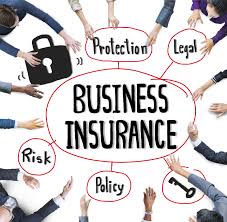What is Business Insurance?
Business insurance is a broad term that encompasses various types of coverage designed to protect businesses from a wide range of risks. These risks can include property damage, legal claims, employee-related issues, and loss of income due to unforeseen circumstances. The primary purpose of business insurance is to ensure that a company can continue operating, even when faced with significant challenges that might otherwise disrupt its operations or lead to financial ruin.
Types of Business Insurance
-
General Liability Insurance
- General liability insurance is one of the most common types of business insurance. It covers legal costs and damages if your business is sued for causing bodily injury, property damage, or personal and advertising injury to a third party. This type of insurance is essential for all businesses, regardless of size or industry.
-
Property Insurance
- Property insurance covers the physical assets of your business, such as buildings, equipment, and inventory, against risks like fire, theft, or vandalism. If your business property is damaged or destroyed, property insurance can help cover the repair or replacement costs.
-
Workers’ Compensation Insurance
- Workers’ compensation insurance is mandatory in most states and provides benefits to employees who are injured or become ill due to work-related activities. This insurance covers medical expenses, lost wages, and rehabilitation costs, and it also protects businesses from potential lawsuits related to workplace injuries.
-
Professional Liability Insurance
- Also known as errors and omissions (E&O) insurance, professional liability insurance is crucial for businesses that provide professional services or advice. It covers legal defense costs and damages arising from claims of negligence, mistakes, or failure to deliver promised services.
-
Business Interruption Insurance
- Business interruption insurance helps cover lost income and operating expenses if your business is temporarily unable to operate due to a covered event, such as a natural disaster. This insurance can be a lifeline for businesses that face temporary closures but need to maintain payroll and other essential costs.
-
Commercial Auto Insurance
- If your business owns or operates vehicles, commercial auto insurance is necessary to cover damages and liabilities resulting from vehicle accidents. It typically includes coverage for bodily injury, property damage, and medical payments.
Why Business Insurance is Essential
Having the right business insurance is essential for several reasons:
-
Risk Management
- Every business faces risks, from natural disasters to legal claims. Business insurance acts as a safety net, allowing you to manage these risks without facing crippling financial losses.
-
Legal Compliance
- Many types of business insurance, such as workers’ compensation and commercial auto insurance, are legally required in certain jurisdictions. Failing to comply with these requirements can result in fines, legal penalties, and the inability to operate your business.
-
Protecting Your Assets
- Business insurance helps protect your company’s physical and financial assets. In the event of a loss, having insurance can mean the difference between recovering quickly and facing bankruptcy.
-
Building Credibility
- Having comprehensive business insurance can enhance your company’s credibility with clients, partners, and investors. It shows that you are a responsible business owner who is prepared for unforeseen events, which can foster trust and confidence in your business

















